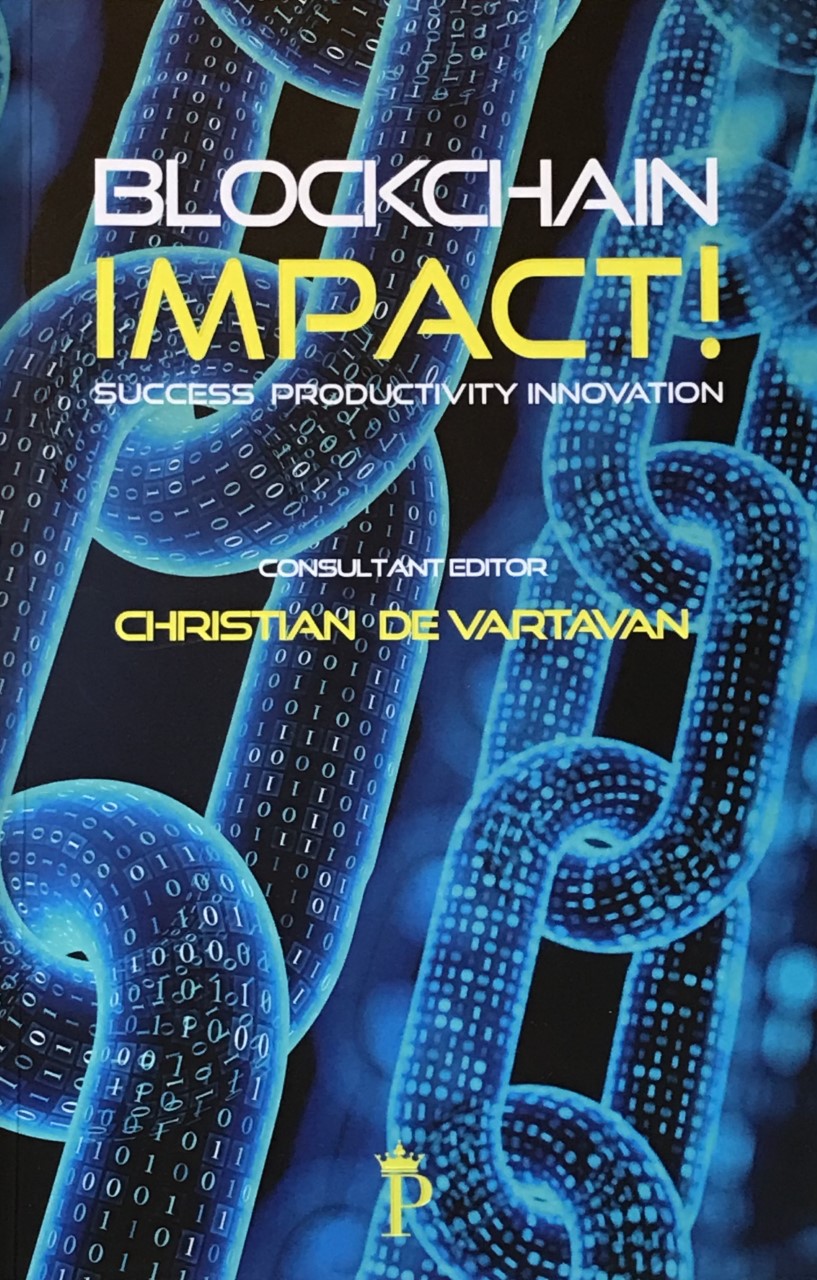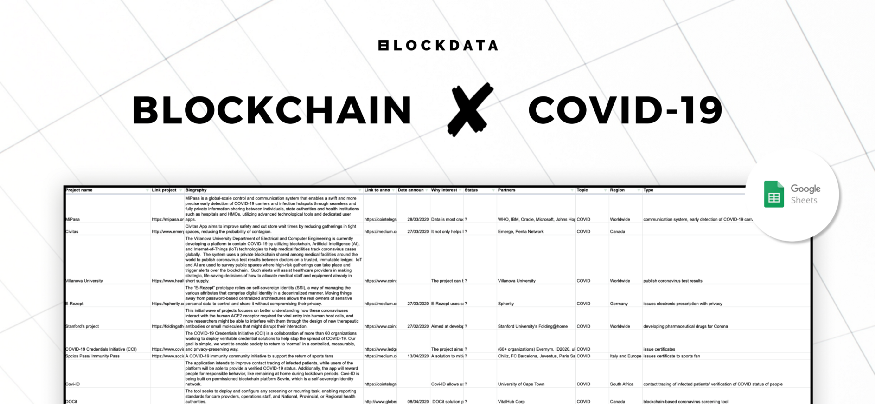
|
Stress-testing a space-based blockchain November 16, 2021 SpaceNews interviewed Hasshi Sudler, Villanova adjunct professor and CEO of the Internet Think Tank, to learn more about future blockchain constellations. Villanova University researchers are conducting a series of experiments that could help define future blockchain constellations. Researchers from Villanova's College of Engineering programmed a singleboard computer to serve as a node for the Ethereum Private blockchain on a cubesat scheduled to be launched in December with the educational nonprofit Teachers in Space on Firefly Aerospace Alpha rocket. Once in orbit, Villanova researchers led by Hasshi Sudler, adjunct professor of engineering, will test the ability of the blockchain node to process transactions. As a follow-on experiment, the researcher team plans to launch three satellites to test transactions between blockchain nodes as well as between satellites and the ground stations. |

|
|
Newly released book, BLOCKCHAIN IMPACT! with contributing chapter by Hasshi Sudler, is now on sale June 20, 2021 BLOCKCHAIN IMPACT!, for which Hasshi Sudler is a contributing author, spans the emergence and growth of blockchain technology into the various use-cases blockchains are applied. This is a milestone publication giving readers a snapshot of how far blockchain has come and where it is headed. Sudler's contributing chapter focuses on two blockchain innovations. The first is the new space economy where blockchain is providing the essential infrastructure for secure, immutable and distrubuted transactions in space. The second is an innovation of automated contact tracing for COVID-19 and other infectious diseases using blockchain technology. Both provide insight into some of the most emerging fields of blockchain use. |

|
|
Engineering Researchers to Test First Private Blockchain in Space to Validate Blockchain Technology for Inter-Satellite Transactions April 21, 2021 Researchers from the Villanova University College of Engineering will test the first private blockchain in space to validate blockchain technology for inter-satellite transactions, ushering in the future of space commerce. The tests will be conducted by Adjunct Professor of Engineering Hasshi Sudler and graduate student, Alejandro Gomez. This will be the first Villanova experiment launched into space; it will also be the first test of a recent consensus protocol known as Proof of Authority, a means of confirming transactions through the use of several validator nodes that store data, securing the blockchain network. Satellite transactions over the blockchain will be a way to securely request, transfer and pay for data between satellites. "Similar to a postal delivery, the receiver signs for the package to confirm receipt. Blockchain transactions do the same but with the added security of making sure many people witness the fact that you signed for a package, received it, and paid for it. Because the group forms a consensus around this exchange, there is no need for a single trusted third party (TTP) to oversee the validity of the exchanges. The blockchain allows two satellites to reliably complete data transactions without communicating with a ground station to supervise these inter-satellite exchanges," explains Sudler. |

|
|
Blockchain Satellites -- The Future of Space Commerce October 28, 2020 Villanova University's College of Engineering will test a private blockchain in space to validate blockchain technology for inter-satellite transactions. This will be one of the first tests of a private blockchain used in space satellites. It will also be one of the first tests of a recent consensus protocol known as Proof of Authority, a means of confirming transactions through the use of several validator nodes securing the blockchain network. The tests will be conducted by adjunct professor, Hasshi Sudler, and graduate student, Alejandro Gomez. To launch the blockchain into space, Villanova University is collaborating with Teachers in Space, Inc., a non-profit organization that developed the "Serenity" educational CubeSat satellite and secured a flight on Firefly Aerospace's Alpha launch vehicle. The two stage rocket is scheduled to lift off from the Vandenberg Airforce Base in California in 2021. |

|
|
Villanova University to Send Private Ethereum Blockchain Into Space to Test Inter-Satellite Communication October 21, 2020 Villanova University's College of Engineering is sending a private Ethereum blockchain into space to test whether distributed ledger technology (DLT) can help satellites exchange data. Working in collaboration with the non-profit Teachers in Space, Villanova's engineering school secured a flight for its blockchain on a Firefly Aerospace rocket slated for launch on Nov. 20 from the Vandenberg Air Force Base in California. The rocket will carry a "Serenity" satellite that will include Villanova's private blockchain mounted on a Raspberry Pi, a credit card-sized single board computer. Hasshi Sudler, an adjunct professor at Villanova who is leading this project, said the large number of communications and other types of satellites that are already in space brought into focus how blockchain technology could help this sector. Currently, there are almost 2,800 man-made satellites orbiting Earth, 1,425 of which belong to the U.S., according to data collected by the Union of Concerned Scientists. |

|
|
E-Crypto News Talks To Hasshi Sudler On Space Blockchains October 8, 2020 Hasshi Sudler, Chairman & CEO Internet Think Tank Inc. and Adjunct Professor at the Villanova University College of Electrical and Computer Engineering, and his team will on November 20 be launching the world's first private blockchain outside the Earth's atmosphere from California's Vandeberg Airbase. The great thing about the event is that history will be made before, during, and after the event. Not much is known yet about performing blockchains outside earth. It presents a chance to understand how blockchain technology will work in space and possibly one day could be an essential part of space exploration. The possibilities are endless. E-Crypto News reached out to Hasshi Sudler on this and other blockchain-related issues. Here is what he had to say. |

|
|
Blockchain Tech Could Lead To COVID-19 Immunity May 28, 2020 Over the past month, we have seen a series of ongoing efforts across universities, medical academia, the private sector and private citizens on harnessing distributed ledger systems in the fight against the novel coronavirus. In fact, experts note that blockchain tech could lead to advanced sourcing of medical equipment - which could in turn lead to COVID-19 immunity in the long run. As of yet, there is no known cure for COVID-19 and there will be no vaccine against the virus for at least a year. This leaves medical practitioners, researchers and innovators to try and find numerous ways of mitigating the virus and its impact. As the blockchain news now show, boosters and innovators are now finding new fronts to pitch in. As we can see, contact tracing is one of the best avenues for this development now. Blockchain tech could be used to trace positive COVID-19 cases, possibly getting ahead of future outbreaks. This breakthrough was found by Hasshi Sudler, an adjunct professor with Villanova University's Department of Electrical and Computer Engineering. |

|
|
Villanova professor says blockchain technology may be useful in contact tracing May 20, 2020 Hasshi Sudler, who teaches in Villanova's electrical and computer engineering department, said he believes blockchain technology would be a useful tool in contact tracing - a process of identifying people who might have come into contact with a person infected with Covid 19, telling them they might have been exposed, and suggesting a course of action ranging from testing to self-quarantining. Sudler said using blockchain technology involves setting up a secure computer database in which all the parties agree to share the names of those with whom they are coming into contact. The private network would offer anonymity to users, especially those who report they are infected with the virus. |

|
|
How Blockchain Projects Are Helping In The Fight Against COVID-19 April 24, 2020 As nations across the globe are trying to contain the virus, the COVID-19 pandemic has laid bare shortcomings in our health, science, government, and business organizations. With over 2.5 million infected and over 170,000 deaths, every continent except for Antarctica has been affected by the coronavirus and with numbers increasing, the crisis has frozen the lives of billions of people. The governmental stay-at-home orders along with the absence of a vaccine and solution have resulted in increased panic worldwide. |

|
|
Technology Vs. Virus! How Blockchain Can Help Fight COVID-19 Pandemic April 13, 2020 Hasshi Sudler of the Villanova College of Engineering has talked about two critical areas where blockchain could come to the rescue in the fight against the pandemic. He said, "As individuals travel across borders, medical facilities need immutable, trustworthy medical data quickly and electronically. A critical requirement to contain coronavirus is to track any individual having tested positive and to track the health of anyone who has come in contact with that individual, even if those encounters were across borders." Thus blockchain could act as a database globally where the information can be accessed by medical facilities anywhere, although he also warns against potential cases of misinformation. Blockchain can allow medical facilities to access the data on the persons tested, the test results, and kits on a real-time basis to identify and curtail false information. |

|
|
Researchers Are Tapping Blockchain Tools in Fight Against Coronavirus April 9, 2020 A series of ongoing efforts across universities, medical academia, the private sector and even private citizens are harnessing distributed systems in the fight against COVID-19. The projects are attempting to buttress governmental stay-at-home orders that have frozen billions of people in a global effort to flatten the curve. There's no known cure for COVID-19 and there will be no vaccine against the coronavirus that causes it for at least a year, leaving medical practitioners, researchers and innovators to try and find ways of mitigating its impact - and blockchain boosters are finding new fronts to pitch in. One such avenue is in contact tracing. Hasshi Sudler, an adjunct professor with Villanova University's Department of Electrical and Computer Engineering, is leading development of a permissioned blockchain for doctors to trace positive COVID-19 cases, possibly getting ahead of future outbreaks. |

|
|
Blockchain's Role in Controlling the Spread March 20, 2020 Since its inception in 2008, blockchain technology has made significant advancements and been introduced into different areas of use. Few of them are as critical as medicine and sustaining medical facilities. The outbreak of the COVID-19 global epidemic has brought blockchain technology into the limelight as it can play an important role in containing the spread of the virus. As individuals travel across borders, medical facilities need immutable, trustworthy medical data quickly and electronically. A critical requirement to contain coronavirus is to track any individual having tested positive and to track the health of anyone who has come in contact with that individual, even if those encounters were across borders. The blockchain can be a common source of data that allows medical facilities to share immutable information internationally. |

|